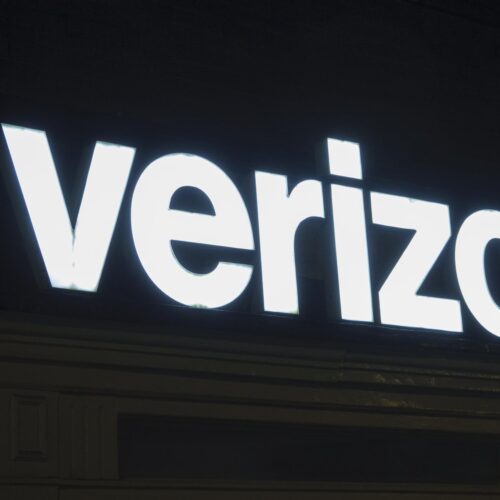Verizon wants to escape promises it made in exchange for merger and spectrum.
Verizon petitioned the Trump administration to let it lock phones to its network for longer periods of time, making it harder for customers to switch to other carriers.
There are two rules that require Verizon to unlock phones more quickly than other major carriers. Verizon agreed to both rules and gained significant benefits in return—first in 2008 when it purchased licenses to use 700 MHz spectrum that came with open access requirements and in 2021 when it agreed to merger conditions in order to obtain approval for its purchase of TracFone.
The Biden-era Federal Communications Commission last year proposed a 60-day unlocking requirement that would apply to all wireless providers, which would have made AT&T and T-Mobile follow the same unlocking timeframe as Verizon. But now that the FCC is chaired by Republican Brendan Carr, it’s looking to eliminate telecom regulations instead of making them stricter. Verizon sees this as an opening to seek an end to its unlocking obligations.
Carr opened a so-called “Delete, Delete, Delete” proceeding in order to identify rules that should be scrapped. Verizon submitted comments last month asking for deletion of the locking rules and followed up this week with a formal request to waive the rules “until such time as the Commission decides on an appropriate industry-wide approach for the unlocking of wireless devices.”
Verizon argues that unlocking phones encourages theft and is bad for customers.
“The Unlocking Rule applies only to particular providers—mainly Verizon—and distorts the marketplace in a critical US industry,” the Verizon petition said. “The rule has resulted in unintended consequences that harm consumers, competition, and Verizon, while propping up international criminal organizations that profit from fraud, including device trafficking of subsidized devices from the United States. These bad actors target and harm American consumers and US carriers like Verizon for their own profit, by diverting unlocked trafficked devices to consumers in foreign countries.”
Verizon also said that after it bought TracFone, there was “a sharp increase in the number of TracFone devices that deactivated before making enough payments for Verizon to recover the subsidy on the device.”
Verizon: Do it for DOGE
With FCC Republicans backing DOGE-style changes, Verizon name-dropped Elon Musk’s Department of Government Efficiency in its petition. The unlocking rule is “the perfect example of the type of rule that the Commission should eliminate as part of the Department of Government Efficiency’s Deregulatory Initiative,” Verizon said.
During Trump’s first term, the FCC granted Verizon a partial waiver allowing it to lock phones for 60 days to fight fraud. Verizon claims 60 days isn’t enough, and it wants to lock phones for at least six months.
“Recent industry experience shows that even a lock of 60 days does not deter device fraud—a huge and growing problem in the United States—and instead enables trafficking in devices that are illicitly sent to foreign marketplaces. This is why the industry standard for providers not subject to the Unlocking Rule is a minimum of 6 months or longer,” Verizon’s petition said.
Verizon said the FCC spectrum rules it agreed to in 2008 were based on concerns related to net neutrality and open access that are no longer relevant.
“The concerns about the nascent wireless broadband and smartphone marketplace that animated the adoption of that rule—such as new iPhones being designed to work exclusively on one provider’s network or restrictive ‘walled gardens’ for applications—no longer apply today,” Verizon said. “It is past time for the Commission’s experiment with the Unlocking Rule to end, because today’s wireless marketplace bears little resemblance to the one that existed when the rule was adopted, and the rule harms consumers, competition, and Verizon.”
Previous chair sought 60-day rule for all
Former FCC Chairwoman Jessica Rosenworcel, who served under President Biden, didn’t agree that the rules were outdated. In the November 2021 approval of Verizon’s TracFone purchase, Rosenworcel’s FCC required Verizon to extend its 60-day unlocking policy to devices sold by TracFone that use the 700 MHz spectrum. TracFone previously had a 12-month locking policy.
Rosenworcel later proposed that a similar rule be applied to all major carriers.
“You bought your phone, you should be able to take it to any provider you want,” Rosenworcel said in July 2024, when she proposed extending the 60-day period to the rest of the industry. A nationwide standard of 60 days “is in the best interest of consumers and competition,” she said. Rosenworcel’s proposal would have required carriers to unlock each phone 60 days after activation unless a carrier determines a handset was purchased through fraud.
The FCC voted 5–0 to seek comment on Rosenworcel’s Notice of Proposed Rulemaking. While Carr joined that vote, Verizon is hopeful that his push to eliminate regulations will include the 60-day unlocking rules.
“[T]he Unlocking Rule is an outdated regulation that has become both burdensome and harmful—precisely the kind of regulation that the current Administration is focused on rescinding in the public’s interest,” Verizon’s waiver request said.
Jon is a Senior IT Reporter for Ars Technica. He covers the telecom industry, Federal Communications Commission rulemakings, broadband consumer affairs, court cases, and government regulation of the tech industry.






